Virginie, Switzerland
Interview conducted remotely aboard the R Heritage Too
It is the end of May and the Azores are starting to show signs the summer season is on its way. The weather is becoming consistently warmer and the winds are dying down. New and interesting species of fish are appearing in the harbor. I again donned my scuba gear to help a fellow in the marine recover something he dropped off the dock. As he was doing maintenance on the propeller of this outboard he dropped the bushing into the ocean. Fortunately the bottom was firm and the water was very clear after several days of little wind so recovery was quite easy. He offered to pay me but I declined. He then offered to take me fishing. I very much look forward to this trade.
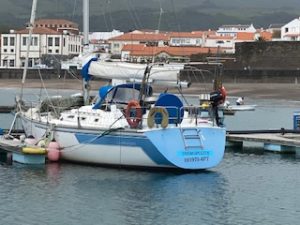
One of the side projects I am working on is studying the feasibility of sailing to the Pacific Ocean using the Northern route. The infamous Northwest passage which is much shorter than the southern route around south America. The first captain to do so was Roald Amunden in 1906. Fewer people have made this trek than have stood on top of mount Everest and it is considered a feat of similar magnitude. In 2018 only 2 pleasure boats successfully made the crossing but in past years as many as 20 have successfully made the crossing. Thirty to forty licenses for each passenger must be obtained and most crews hire a firm to help with the paperwork.
My friend Arnaud from Switzerland who I interviewed last fall was aware of these desires and is also preparing a crossing in his well suited boat the Altas (facebook page @sailingatlas). His journey plans are a bit more scientifically oriented and is working with a team of Marine biologists from around the globe to study whales and other arctic marine species during the crossing. One of these cetacea experts is Virginie who is also from Switzerland. Reading about their quest enabled me to play marine biologist for a few days. It was very nice to think about science again and am excited to follow their journey which will begin in 2021 with an expected crossing in 2022. I asked Virginie if she would be willing to share an opinion. Her words follow.
What is your favorite part of living in Switzerland?
I love chocolate, mountains, lakes and rivers. Switzerland is a small country with many facets and different cultures. I think people are friendly and that our neutrality status gives us quite a lot of freedom in our thoughts and actions. There are beautiful walking trails, we have access to pristine water, good foods and public transportation. Our medical, education, laws, personal security and insurance are some of the best in the world. We also enjoy great access to places and people in the World, in part due to our neutral status. I view myself as citizens of the World with a Swiss nationality and feel extremely lucky to be born here and have access to all of this.
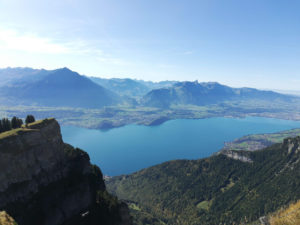
What is your least favorite part of living in Switzerland?
Switzerland is very well organised, it’s very rare to have a train late, people are super extra organised. I find that spontaneity is sometimes difficult to get from administration or people. As a biologist I have always found it hard to get a paid job in the field as environmental organisations are mainly hiring trainees and civil engineers. Certifications are extremely important as a Swiss scientist and sometimes it can be hard to find an interesting position that matches your skill set. Certifications recognized abroad may not be recognized in Switzerland. The biggest problem about Switzerland is that there is not enough wildlife for my taste and in particular that there is no ocean. Consequently there are no whales and dolphins which are my greatest passion. Thus, I have to go abroad regularly to work.
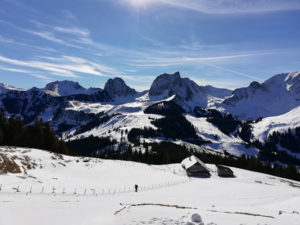
Do you see the changes to the world where you live?
In Switzerland glaciers are melting quicker than many other locations in the world and we have experienced a 10% loss since 2000. Snowfall seems to be decreasing globally and winters are becoming warmer. It is now very rare to have snow over Christmas. In summer we go swimming in the river “the Aare” and these past years the river (made of glacier water) is noticeably warmer. Last year it reached the record of 24 degrees. I find that our rain is becoming stronger and sometimes looks like tropical rainfall.
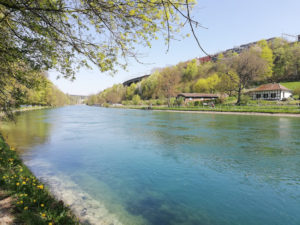
My boyfriend is a forest engineer and they notice a change in the forest ecology as well. Temperatures are rising, in summer 2018 and 2019 the summers were drier and some trees like red fir and beech have been severely impacted. They are more susceptible to attacks from pests such as bark beetles and they’re starting to plant tree species more adapted to warmer climates. What I have observed personally related to climate change is the impact of ocean acidification and rising water temperatures on the ocean. The most memorable event I have observed was in Australia. I participated in a project on the Sunshine Coast with Humpback whales. We were studying their migration and how they were impacted by underwater noise. They have started their migration a month earlier than normal and this change in migration times can be observed worldwide. The most striking memory related to climate change was the health of corals on the Great Barrier Reef.
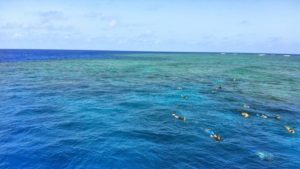
A friend from Switzerland joined me for a month of holiday and we were able to fulfill a bucket list item of seeing the Great Barrier Reef starting from Cairns. We were both expecting an ocean of color under water but we were quite shocked to see vast stretches of dead white corals. Corals are indeed very sensitive to ocean warming and turn white as a stress response. This happens because they are expelling the algae that grows inside them which provides them the majority of their energy. These photosynthetic bacteria are also what gives corals their beautiful colors. We were there in 2014 but a more significant bleaching event occurred in 2016 which reduced the coral population by 50%. Since then 2 other bleaching have happened and I find it extremely sad as this reef is the refuge of more than 1500 species of fish and 411 species of hard corals. Numerous other species rely on a healthy reef for their homes. I have seen lately a documentary about a huge coal mine happening just next to it that belongs to the Indian Adani Group (Wrecking our Reef) and the increase of pollution plus global warming are extremely concerning threats for the Great Barrier Reef.
How will this impact your community?
I think in Switzerland, tourism will be impacted as our mountains and snow are our main attraction, but compared to other countries we are very lucky. We have drinkable and free waters, we are importing lots of different food and our primary needs will still be met if the sea is rising or the water is warming. We also don’t have cyclones but very strong winds are becoming more and more common.
I am personally more afraid for the population living close to the sea being subjected to extreme weather conditions such as cyclones and hurricanes. Fires like those in Amazonia and Australia are also becoming increasingly common. People in Africa are also experiencing droughts more often and much of this population already has inadequate access to potable water. Many coastal communities also rely on coral reefs and fish for their food and livelihoods will be dramatically impacted.
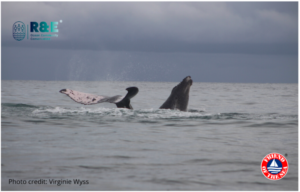
I also worry about the long-term effects on ecosystems as many species are clearly impacted by climate change. Migration times and patterns are changing and species like the seals and penguins in polar regions are losing their homes. Sex ratio about certain species will also changed like sea turtles, alligator and crocodiles, if the temperature of the environment of the eggs is becoming warmer their will be more females. Whales and dolphins are going more and more closer to the shore to feed, increasing the threats of entanglement and collision with boats, others like minke whales are less protected by the ice and more reachable by predators like killer whales.
Can you give me an example of something you are doing to reduce your impact on the planet?
I have travelled quite a lot since I was 20 years old, I think all these travels and experiences have clearly modified my vision of the world and I have really seen the interconnectedness of all species. I am convinced that we are all one and that if we want to change the world we have to start by changing our own actions. When I came back to Switzerland in 2015, I became vegetarian and spirituality helped me to find a meaning in my life. I quit smoking, started to meditate, practice yoga, started gardening and I learned about circular economy and sustainable development. I am trying to apply the Zero waste principle to my everyday life: the 5 R (Refuse (flyers, etc) , Reuse (mug), Reduce (clothes consumption), Recycle (trade old clothes or turn them into bags), and Rot (compost).

I think it’s very important to respect what we eat, what we wear and what we consume. I am trying to buy local and bio vegetables and fruit. I also strive to avoid packaging. I look for traceability and ecolabels and never go out without several reusable bags and a bottle of water. As regards clothes or special material I always try to find it second hand, so flea markets, second hand shops and platforms online like tutti.ch or anibis.ch are my main supermarkets.
I would recommend to go step by step and implement small actions everyday in your life for more conscientiousness. Like if you are eating meat everyday just start to do a day without it and look to reduce your consumption progressively. Contrary to popular belief, animal products are not so good for our health and since I am vegetarian I love to cook and I became way more creative. My plates are so much more colorful. Here is a Buddah bowl recipe: just choose cooked and uncooked vegetables and put ⅓ rice and ⅔ vegetables. For the Sauce you can use a spoon of tahini and a lemon with a bit of water or do your regular salad sauce! I am far from perfect and still strive for continuous improvement. My current goal is to reduce my water consumption (I love to take bath). I don’t own a car anymore but I am still flying a lot for my work. During this corona crisis my packaging garbage is another area for self-improvement.
Is there anything you would like to ask or tell me?
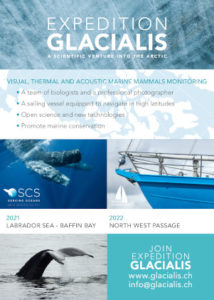
Thank you very much Matthew for your help on our Arctic Project and for asking me about this interview. Thanks to Arnaud, our captain and talented photographer that introduced us and I hope that the Glacialis Expedition: our scientific venture into the Arctic will help raise awareness about the threats Arctic population and marine mammals are facing. You can have a look at our adventurous marine mammal monitoring project that will take place from May 2021 to August 2022 here (Glacialis Expedition).
Virginie’s words make me think about citizenship. While I do feel that we should all be proud to be citizens of the country we are from, I also feel that we are all citizens of the world. Earth is our only planet and by making small changes to our individual behaviors, collectively we can have a large positive impact on the health of planet Earth. For me my current opportunity for self improvement is to always sort and recycle garbage. I go through phases when I am quite diligent but have lapses at times. It seems like a pretty simple change I can make to my own actions.
I am also reflecting on other events occurring in the world today. Space X and the team of world citizens assembled by Elon Musk are launching people into space using largely reusable rockets for the first time from American soil in almost a decade. I enjoy dreaming big and like his vision of man visiting Mars with the long term, but currently not so feasible goal, of establishing a permanent human presence. I dream that this will occur in my lifetime and hope that someday Elon will contribute an opinion to this website. I do not understand why roughly half of Americans seem to dislike Elon. Perhaps it is his passion for open source technology, or maybe it is his showmanship. To me this is something that is an American trait that perhaps should be celebrated. His technological contributions are certainly noteworthy, but perhaps his greatest contribution will be to show the next generation of young scientists that it is good to dream big and to shamelessly celebrate your inner-geek.
I feel compelled to share some words of Captain Bruce that I found in a tattered maintenance journal I found while making a manifest for the boat. It seems like a dream of sorts and is entitled “Sailing.”
“One lifts the weight of thousands of years when ye haul anchor for a distant land. It is not for the one to understand the journey ahead but let it be known it was cast in the stars long ago.
In an ocean full of tears of the millions that departed before us, how do we think our voyage is but this day. For all days we must cross with respect and never assume we will not be tested. The testing can be simple or a powerful struggle of survival. But let the testing follow the methods and skills handed down long before us. For with every passing grade we truly have accomplished a journey worthy of our fine ship.
Spread the dacron like the cotton sails of not long ago and catch the balmy trades. Seek out sunrise at sea. Glory at moonset. Find Polaris or the Southern Cross. Visit whales out in their domain upon the great dish of water that stretches from horizon to horizon. For in 500 years it will be the stories of solar sails and great ships crossing the vastness of a new sea called space.” – Captain Robert Bruce Leeming